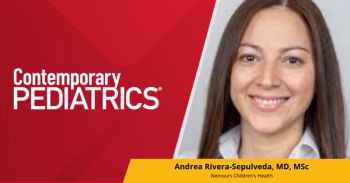
Senate subcommittee holds hearing on child abuse
The president of the American Academy of Pediatrics told a Senate committee that childhood trauma, including abuse and neglect, might be the leading cause of poor health among US adults.
The president of the American Academy of Pediatrics told a Senate committee that childhood trauma, including abuse and neglect, might be the leading cause of poor health among US adults.
Robert W. Block, MD, cited the Adverse Childhood Experiences (ACE) study that surveyed 18,000 middle-class adults, asking them about childhood experiences such as psychological, physical, or sexual abuse; violence against their mothers; and living with people who were substance abusers, mentally ill, suicidal, or ever imprisoned.
The ACE study, sponsored by the Centers for Disease Control and Prevention and Kaiser Permanente, found that adults who had the highest levels of trauma are 5 times more likely to be alcoholics, 9 times more likely to abuse illegal drugs, 17 times more likely to have attempted suicide, twice as likely to develop heart disease, and twice as likely to be obese.
Block wrote that the federal Child Abuse Prevention and Treatment Act (CAPTA) requires states to provide immunity from civil and criminal liability for people making good faith reports of suspected child abuse or neglect. But the laws, he said, do not protect physicians or others who consult, cooperate, or assist with filing a mandatory report.
Block said that he has colleagues in child abuse pediatrics who have been sued for violating families' Fourth and Fourteenth Amendment rights. He also told the committee, "In addition to wide variations in child abuse definitions, state laws vary widely and are incredibly inconsistent with regard to who may be charged with child maltreatment and when a report of suspected child abuse and neglect must be made."
He said that even in the medical community, there are inconsistencies about what is considered suspicious, and sometimes there is misunderstanding about the child abuse reporting process.
Block called for health care financing to appropriately pay for the more complex and lengthy visits that are often needed for abused children; funding for education for the subspecialty of child abuse pediatrics recently developed by AAP; training other pediatricians to identify abuse victims and intervene properly; support for the medical home; better support for the child welfare and mental health workforce, as well as prevention efforts such as home visitation programs; and education, support, and protection of mandatory reporters.
Sen. Barbara Mikulski (D-MD), who called her early experience as a child neglect social worker "searing," said Congress should look at whether CAPTA, which provides funds to states, needs to be amended.
Part of the hearing focused on the possibility of expanding the categories of people who are mandated to report child abuse, possibly to all adults. Mikulski said she felt every adult has a responsibility to act when they see something problematic.
Sen. Robert Casey Jr. (D-PA), who requested the hearing, has introduced legislation to require states to make every adult a mandated reporter if the state receives federal funding for child abuse.
Newsletter
Access practical, evidence-based guidance to support better care for our youngest patients. Join our email list for the latest clinical updates.








